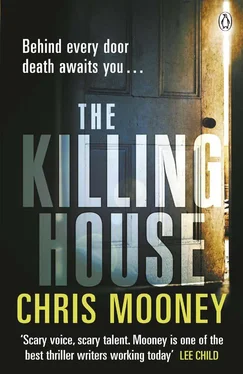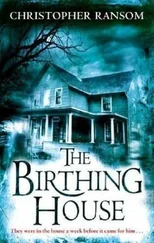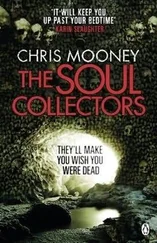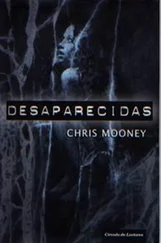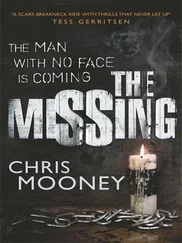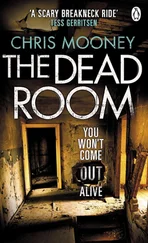Chris Mooney - The Killing House
Здесь есть возможность читать онлайн «Chris Mooney - The Killing House» весь текст электронной книги совершенно бесплатно (целиком полную версию без сокращений). В некоторых случаях можно слушать аудио, скачать через торрент в формате fb2 и присутствует краткое содержание. Жанр: Триллер, на английском языке. Описание произведения, (предисловие) а так же отзывы посетителей доступны на портале библиотеки ЛибКат.
- Название:The Killing House
- Автор:
- Жанр:
- Год:неизвестен
- ISBN:нет данных
- Рейтинг книги:5 / 5. Голосов: 1
-
Избранное:Добавить в избранное
- Отзывы:
-
Ваша оценка:
- 100
- 1
- 2
- 3
- 4
- 5
The Killing House: краткое содержание, описание и аннотация
Предлагаем к чтению аннотацию, описание, краткое содержание или предисловие (зависит от того, что написал сам автор книги «The Killing House»). Если вы не нашли необходимую информацию о книге — напишите в комментариях, мы постараемся отыскать её.
The Killing House — читать онлайн бесплатно полную книгу (весь текст) целиком
Ниже представлен текст книги, разбитый по страницам. Система сохранения места последней прочитанной страницы, позволяет с удобством читать онлайн бесплатно книгу «The Killing House», без необходимости каждый раз заново искать на чём Вы остановились. Поставьте закладку, и сможете в любой момент перейти на страницу, на которой закончили чтение.
Интервал:
Закладка:
‘Sound?’
‘Inside the house, yes, but not outside,’ she said. ‘I heard the entire conversation between Borgia and Karim. I saw what transpired inside the treatment room. How you intervened and saved Mr Karim’s life.’
‘What happened to Santiago?’
‘A man took him and placed him in the backseat of a Lincoln Town Car — the same man who shot Boyd Paulson inside the garage. The man has some sort of facial disfigurement.’
‘And Dr Sin?’
‘The man pulled a gun on her inside the treatment room. Then he trussed her and placed her in the trunk of the Lincoln.’
‘Alive?’
‘Alive. Hold on.’
On the other end of the line Fletcher heard the tap of computer keys. He thought about Santiago and the doctor. They were alive when they were taken, but where had they been taken?
Then he thought about the netbook. It contained the information downloaded from Corrigan’s phone — addresses and phone numbers, GPS data. The netbook was locked inside the Jaguar’s trunk, and he had no way to access it.
M came on the line and said, ‘The Feds just found the FTP site, but they won’t find the video files. I erased everything.’
‘There’s always a trace.’
‘Not if you know what you’re doing.’ For the first time Fletcher heard a note of anger in her voice. ‘Trust me, they won’t find a bloody thing on the laptop or the server. I need to shut down and get going. What else do you need me to do?’
‘See what you can find out about Alexander Borgia.’
‘I’ve already started,’ she said. ‘Now, when and where do you want to meet?’
III
62
The bureaucratic powers working overtime at FBI headquarters had been convinced by its Media Office that it would be wise to get in front of the Malcolm Fletcher story before the story got in front of them. A targeted national media campaign would not only be the best way to spin the story, it would also be the most effective way to flush out the fugitive from hiding.
The Bureau’s top media experts crafted a succinct press release. The terse paragraphs, along with a handful of accompanying colour photographs of the former profiler they had on file, were released to every major newspaper before press time. Then they went to work on devising commercials that would run in heavy saturation on the daytime shows. They had used this same strategy, to great success, to apprehend another fugitive.
The Bureau focused on the surrounding Tri-State area and then shifted its efforts to New England, an area Malcolm Fletcher seemed to favour, based on reported and confirmed sightings. In the past, such an aggressive campaign would take days; now, thanks to the Internet and its high-speed delivery system, the task took only a few hours.
New York, New Jersey, Boston and Connecticut field offices personally hand-delivered media packets to all taxi and rental-car companies, stressing the significant reward being offered for information leading to the former profiler’s capture.
The Bureau knew Ali Karim had been aiding and abetting a fugitive inside his home in Cape May, New Jersey. Agents had found a lead-shielded panic room hidden behind a false-wall installed inside the closet. At some point Malcolm Fletcher had emerged, broken Daniel Jackman’s neck and then, after dressing in the agent’s tactical clothing, thrown Jackman inside the closet. Agents had also discovered Fletcher’s overcoat, shoes and a suit jacket.
The Bureau decided to keep this information from the public. At the moment, Karim was lying in a coma; if the man woke up, they could use it as a bargaining chip to get him to open up about his connection to Fletcher, as little was known about the former profiler’s movements over the past two decades.
The Bureau’s public-relations experts argued that the public would want to know why — and how — the former profiler kept eluding capture. To show that the Bureau’s interest and determination in apprehending one of their own hadn’t lapsed or diminished, it was decided that Alexander Borgia should act as the Bureau’s face. He was a natural choice, they said. Borgia had a commanding voice and, despite his short stature, carried a lot of presence. With significant media training already under his belt, he could handle any question thrown at him and spin it effectively.
Borgia was informed of the Bureau’s decision shortly before midnight: FBI Director Oberst had telephoned him over an encrypted line. They spent much of the conversation discussing the laptop found inside Karim’s well-crafted panic room.
Borgia had examined the computer himself. The security software had not been set to record, and the hard drive contained no video images. Forensic analysis by computer techs from New York’s Evidence Response Team revealed, however, that this was not the case.
Karim had installed motion-activated security cameras inside the fire alarms of his New Jersey home. Once a camera was triggered, it started to record; the video images were temporarily stored on the hard drive. Then, a separate program on the laptop uploaded the video files to a secured FTP site on one of Karim’s servers before erasing them.
Examination of the laptop’s hard drive confirmed that video footage had been captured inside the house during a 48-hour period, uploaded to an FTP site, then downloaded and erased from the server during a single session the previous afternoon, starting at 12.34 p.m. Using sophisticated software, the ERT geeks had discovered the location from which the FTP site had been accessed — a four-unit townhouse in Brooklyn. Malcolm Fletcher hadn’t downloaded the files. There was no way he could have reached the townhouse in time.
Agents forced their way inside the townhouse and found the first three units empty of furniture. The unit on the top floor contained computers and illegal equipment that allowed a user to trace a cellular signal. A forensics team was currently working on processing the rooms for prints, DNA, hair and fibres. New York agents were investigating who owned the Brooklyn building while ERT tried to break into the computers. Everything had been password protected with a sophisticated encryption algorithm. The geeks were working methodically to try to break it, afraid of tripping some sort of digital landmine that would permanently erase or destroy the computer’s hard drive.
Borgia had already interviewed two of the seven employees who regularly worked out of Karim’s Manhattan home. Borgia was more interested in the young woman who had been aboard Karim’s private plane: Emma White. Agents watching Karim’s Manhattan home had spotted the woman and her shock of white hair entering the house at 6.36 a.m. She left at 8.43 — with a package, a large yellow mailer. The three agents who had tailed her had lost her somewhere in the subway system. The woman hadn’t returned to Karim’s home, the Brooklyn townhouse or her apartment.
FBI Director Oberst gave Borgia his personal phone numbers. The Director wanted to be updated every two hours on the progress of the investigation. Neither Oberst nor Borgia discussed what would happen if video footage of a Hostage Rescue Team operator planting a knife at a crime scene made its way on to the news or, worse, the Internet.
The first stop on Borgia’s media blitz was the ABC office building. After his appearance on Good Morning America, he would be shuffled off to do an interview for 60 Minutes. The popular CBS-owned programme agreed to run a profile on Malcolm Fletcher that would air the following Sunday. Borgia’s afternoon would be spent at Fox News. The Bureau’s media experts were currently locked in a heated debate about which Fox News programme had the better ratings.
Читать дальшеИнтервал:
Закладка:
Похожие книги на «The Killing House»
Представляем Вашему вниманию похожие книги на «The Killing House» списком для выбора. Мы отобрали схожую по названию и смыслу литературу в надежде предоставить читателям больше вариантов отыскать новые, интересные, ещё непрочитанные произведения.
Обсуждение, отзывы о книге «The Killing House» и просто собственные мнения читателей. Оставьте ваши комментарии, напишите, что Вы думаете о произведении, его смысле или главных героях. Укажите что конкретно понравилось, а что нет, и почему Вы так считаете.
